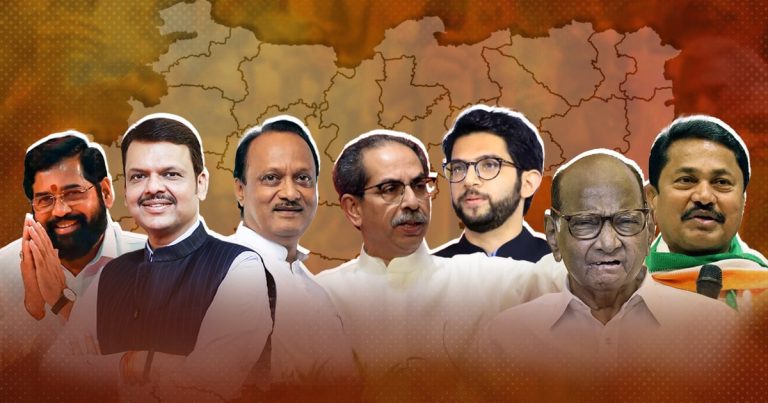There is much to write about the factors that contributed to the BJP’s success, but the bottom line is simple: the party quickly learned from its mistakes and failures, understood the pulse of the people and implemented a bold, high-stakes strategy under the Modi-Shah duo. Their unique brand of social engineering yielded instant results, garnering Marathi and non-Marathi votes. Achieving this level of finesse in such a short time provides a masterclass in political strategy – one that calls for both admiration and study.
The BJP also got a greater share of OBC, SC and ST votes in most of the six political regions. The women beneficiaries of the Ladki Behna program played a vital role, and the RSS lent its disciplinary machine more generously to strengthen the already formidable and finely tuned electoral machine of the BJP. The recent Haryana Assembly election victory has given new impetus to their steps.
Let’s focus on the dramatic collapse of the MVA. From a position of strength, it collapsed in just five months – a stunning reversal after its strong performance in the recent Lok Sabha elections.
This debacle is a serious lesson in letting opportunities slip away. The MVA lost an election it could have won with minimal effort and was swept away by a political tsunami it did not anticipate. It is a reminder of the need to stay connected with the land and its “janata” (people). Humility to at least acknowledge missteps and serious introspection are highly recommended.
I’m having a hard time remembering any of their policy messages that resonated with voters across the state. Not a single one. The MVA seemed stuck in a loop of vague, recycled plans, half-hearted promises, and relentless negativity. Statements such as “Samvidhan khatre mein hai (The Constitution is in danger)”, accusations against opponents and calls for caste censuses dominated their discourse. Add to that a lot of conspiracy theories, and you get a situation where voters have simply turned them off. The relentless barrage of negative sentiment alienated voters who had clearly moved on, leaving the MVA distraught about the big change underway in a matter of months.
Has the MVA proposed even a single article to enthuse voters? I don’t remember any of them. Their campaign lacked focus, vision and an inspiring message – some of the common elements found in parties willing to learn and not gloss over mistakes.
The Congress must understand that its de facto leader, Rahul Gandhi, has so far failed to deliver on his promises. His personal obsessions take over most of the time, preventing him from developing the broad political agenda that India expects from a national opposition party. Uddhav Thackeray fell into the same trap. Only Sharad Pawar offered a narrative that resonated with voters, but the noise generated by Gandhi and Thackeray overshadowed any meaningful message.
Gandhi and Thackeray, for reasons best known to them, concentrated their campaign on Dharavi, as if they were contesting a municipal election or campaigning for a single assembly constituency, rather than tackling the other 287 seats in the large and very important state of Maharashtra. . They failed to recognize that the state’s voters are sensitive to the larger national situation and keen to regain Maharashtra’s privileged position among India’s runaway states.
One wonders why Rahul Gandhi harbors a personal obsession with targeting a first-generation entrepreneur, especially when such posturing does not translate into votes for his party. He must also know that 62 per cent of MVA voters want their Dharavi to become the pride it has the potential to become.
His anti-business stance has been rejected by Maharashtra voters, who see it as part of a broader agenda, perhaps influenced by corporate rivalries or by outside forces jealous of the accelerated rise of India. This perception has damaged Gandhi’s credibility, as voters increasingly view his actions as unconducive to the kind of India it is shaping up to be.
Indians have consistently demonstrated their desire for a robust democracy, which includes a strong opposition to keep the ruling party in check. The result of the 2024 Lok Sabha elections demonstrated this democratic instinct. However, the risk to democracy does not come from Narendra Modi, the BJP or the RSS: it comes from the inability of the Congress to effectively play its role as a responsible opposition party. To some extent, regional parties play this role more effectively. And they also win elections, and have done so for years.
The Maharashtra results have further dampened any lingering hopes that the Congress can meet the challenges. The party suffers too much from cynicism, conspiracy theories and a complete disconnect from the aspirations of a growing India.
Can Congress finally make a comeback and surprise us all? If they really take Indian democracy seriously, that is at least what they owe to all of us.
(Sanjay Pugalia is CEO and Editor-in-Chief of AMG Media Network)



